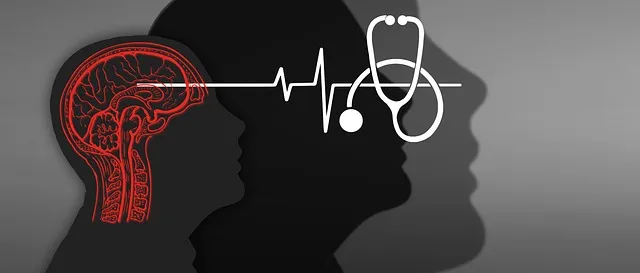Parker Kaiser Permanente (PKP) emphasizes comprehensive risk management in mental healthcare, addressing client challenges like historical trauma and stress. They employ evidence-based practices, robust risk assessments, community outreach programs, and tailored support networks to enhance patient safety and resilience. PKP's proactive approach prioritizes early identification, intervention, and continuous evaluation, fostering an adaptive environment that promotes both client and provider well-being through innovative strategies like Social Skills Training.
Mental health professionals face unique risks in their practice, from patient safety to burnout. This article guides you through essential risk management planning, drawing insights from Parker Kaiser Permanente’s experience. We explore understanding risk in mental health, identifying hazards, developing robust plans, implementing mitigation strategies, and continuously evaluating for adaptation. Discover best practices tailored to organizations like Parker Kaiser Permanente to enhance patient care and professional well-being.
- Understanding Risk in Mental Health Practice
- Identifying Potential Hazards at Parker Kaiser Permanente
- Developing a Comprehensive Risk Management Plan
- Implementing Strategies for Mitigation and Prevention
- Continuous Evaluation and Adaptation for Improved Safety
Understanding Risk in Mental Health Practice

Understanding risk within mental health practice is paramount for professionals aiming to deliver effective care. In the context of Parker Kaiser Permanente’s approach to mental health, recognizing and managing risks are integral to fostering positive patient outcomes. Every client presents with unique challenges, including historical trauma, acute stress, or underlying mental health conditions that can significantly impact their emotional well-being.
Professionals must be adept at assessing these risks, which may manifest as suicidal ideation, self-harming behaviors, or rapid mood swings. By integrating evidence-based practices such as Emotional Regulation techniques, Mental Wellness Coaching Programs Development, and Self-Care Practices into treatment plans, practitioners can equip clients with tools to navigate and mitigate these risks effectively. This proactive approach not only enhances patient safety but also fosters resilience and promotes long-term mental wellness.
Identifying Potential Hazards at Parker Kaiser Permanente

At Parker Kaiser Permanente, dedicated mental health professionals encounter a unique set of challenges that demand meticulous risk management planning. Identifying potential hazards within this environment is an integral step in ensuring patient safety and well-being. One prominent area of concern lies in managing the emotional toll associated with high-pressure situations, extensive caseloads, and complex patient needs. These factors can contribute to burnout and impact professionals’ ability to deliver quality care over time.
Therefore, fostering resilience through targeted interventions becomes a key strategy. Implementing a robust risk assessment process allows for early identification of at-risk individuals, enabling timely support and intervention. Moreover, integrating community outreach programs can mitigate risks by providing additional resources and support networks for both patients and practitioners. By addressing these hazards proactively, Parker Kaiser Permanente can enhance its ability to maintain a safe, nurturing environment conducive to optimal mental health care delivery.
Developing a Comprehensive Risk Management Plan

Developing a Comprehensive Risk Management Plan is an essential step for mental health professionals at Parker Kaiser Permanente. This involves meticulously evaluating potential risks and hazards specific to the field, which can significantly impact both clients’ well-being and practitioners’ resilience. A robust plan should incorporate strategies that cater to individual, institutional, and systemic levels of support.
At its core, this process entails fostering Mental Health Awareness among staff through regular training sessions and workshops, leveraging Empathy Building Strategies to enhance patient care, and ensuring easy access to Trauma Support Services. By integrating these measures, Parker Kaiser Permanente can create a safe and nurturing environment where mental health professionals can effectively manage risks while delivering exceptional patient care.
Implementing Strategies for Mitigation and Prevention

Mental health professionals face unique challenges that demand a multifaceted approach to risk management. Implementing strategies for mitigation and prevention is a key component in maintaining a safe and supportive environment for both patients and practitioners, echoing successful models like the Parker Kaiser Permanente mental health program. These strategies involve proactive measures to safeguard against potential risks, focusing on early identification and intervention of mental health issues.
A robust Community Outreach Program Implementation can play a significant role in Depression Prevention and Mood Management. By extending services into the community, professionals can reach individuals who might otherwise be underserved. This inclusive approach not only enhances accessibility but also fosters a sense of belonging and support, thereby reducing risk factors associated with depression and mood disorders. Tailoring interventions to meet specific needs ensures effectiveness in managing mental health risks within diverse populations.
Continuous Evaluation and Adaptation for Improved Safety

In the dynamic field of mental health care, where every client’s journey is unique, continuous evaluation and adaptation are paramount for ensuring safety and effective treatment. Just as Parker Kaiser Permanente mental health professionals navigate complex patient needs, their risk management strategies must be equally adaptable. By regularly assessing risk factors and adjusting plans accordingly, practitioners can anticipate potential challenges and proactively mitigate them, enhancing the overall safety of both patients and providers.
This ongoing evaluation involves staying attuned to individual client progress, emerging research in mental wellness, and even broader societal trends that may impact mental health. Incorporating evidence-based practices like Social Skills Training and implementing strategies for Burnout Prevention can help professionals sustain their own mental wellness while delivering high-quality care. Such a proactive approach not only safeguards against unforeseen risks but also fosters an environment where both clients and practitioners can thrive.
Mental health professionals, like those at Parker Kaiser Permanente, must prioritize risk management planning to ensure patient safety. By understanding the unique risks in their practice, identifying potential hazards, and implementing robust strategies for mitigation and prevention, they can create a more secure environment. Continuous evaluation and adaptation are key to improving safety measures over time, ensuring that best practices are tailored to the evolving needs of both patients and practitioners within the Parker Kaiser Permanente mental health setting.






